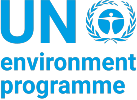Thermal Waste-to-Energy (WtE), also known as incineration with energy recovery, has received considerable attention in developing countries in tackling the growing volume and challenges of waste. Thermal WtE has potential benefits of waste reduction and energy generation; yet, there are challenges regarding its applicability and potential impacts on health, environment, and climate. To clarify the challenges and opportunities associated with thermal WtE implementation in developing countries, IETC has prepared a report on Waste-to-Energy: Considerations for Informed Decision-making.
According to this report, there are over 1,700 thermal WtE plants worldwide, with over 80 per cent of these plants located in developed countries. Landfill and open dumping are widespread in many developing countries, which release large amounts of methane into the atmosphere and contributing to climate change. Diverting waste to WtE plants from these landfills, open dumps and open burning can reduce methane generated from waste decomposition.
On World Environment Day 2019, under the theme of “Beat Air Pollution” this report analyzes linkages between air pollution vis-à-vis open dumps, open burning and thermal WtE waste treatment options. With modern emission control technologies, harmful air pollutants such as dioxins and furans from thermal WtE plants can be reduced with minimal public health impacts, as evident in many WtE plants here in Japan. Yet, mismanaged plants equipped with advanced emission control technologies can still produce unsafe emissions in both developing as well as developed countries
“We cannot blindly implement solutions that we think are necessary, yet which could unfortunately, and ironically, lock us in to waste treatment options that actually remove incentives to reduce our generation of waste.” says Keith Alverson, the Director of IETC. Waste prevention and 3Rs should be put as the top priorities of waste management framework. Careful scrutiny of various strategic aspects and challenges of thermal WtE in a life cycle thinking approach is necessary before implementing WtE options in developing countries.






